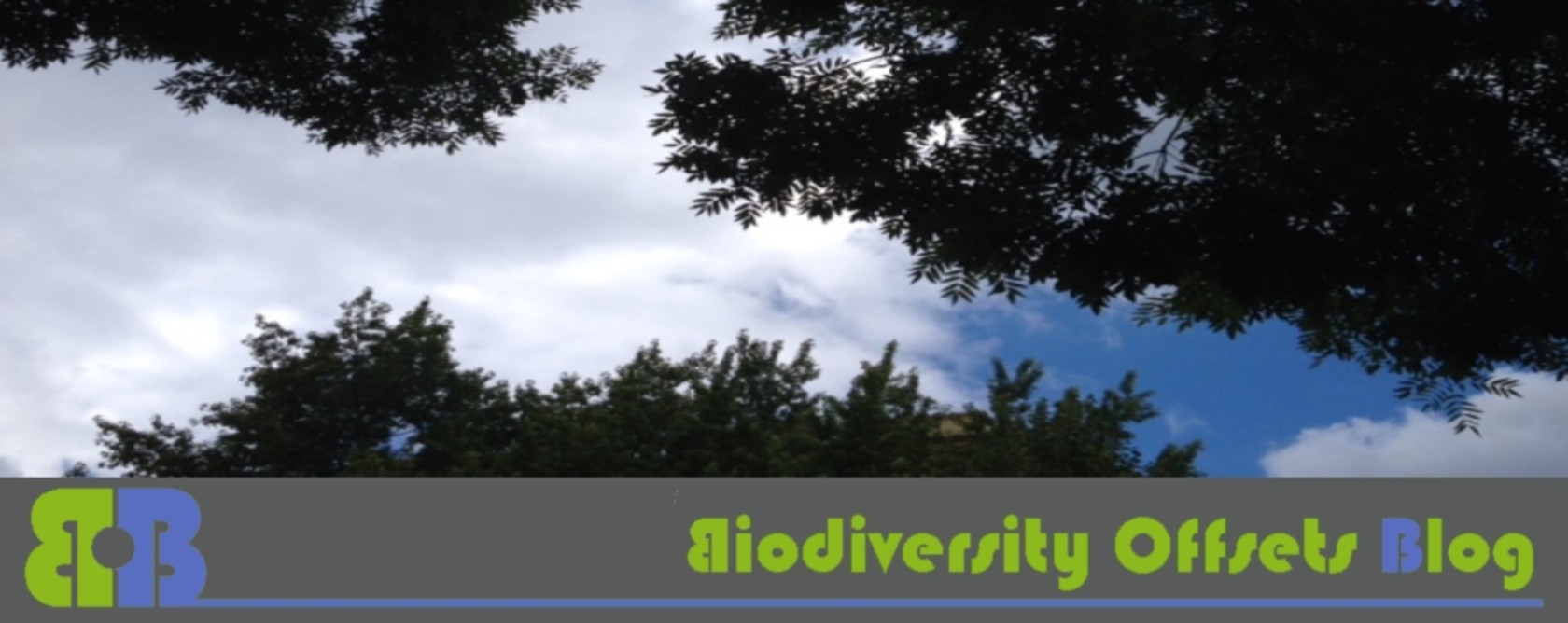Update September 2014
There are a whole follow up section (including several videos) as well as an extensive summary report available. For more information see my post No Net Loss Conference Conclusions and Summary are out.
My observations on the No Net Loss conference
As anticipated the BBOP conference was indeed quite packed — both in terms of lots of people and a whole variety of content. There were about 300 people present and I did not manage to at least say hi to everyone I would have wanted to. Some people I have completely missed even though I was looking for them. Still, people were sharing the feeling of somehow being the BBOP/offset “family” and as I said: well, the family has gotten a bit bigger now ;o)
So my overall observations of the conference would be: big event with lots of (and very diverse) information and insights by numerous people (science, policy, business, NGOs), creating a lively and controversial discussion but still overall familiar and very agreeable atmosphere. The organizers did a really good job. The combination of very short presentations (lessons learnt / conclusions) with longer webinars (they are available on the conference website and all ppt-slides have now been uploaded to the BBOP Library page) for me worked really well and I would consider this if I had to organize an event in the future. Furthermore, I think, it was really smart to invite both people who are in favour of and those who are opposed to biodiversity offsets (there had even been a counter event organised on the eve of the conference: http://naturenotforsale.org/). This made the discussion more controversial with a bit more “hey, wait a minute, let’s step back for a while and look at the bigger picture” instead of “you are right, I completely agree, that is the way we are moving forward”.
In general, it is amazing to see how big and how mature the discussion on biodiversity offsets has become with more and more people having their say and sharing their thoughts! I am pretty sure that this development will not cease to continue and looking forward to the exchange…
For more information check: http://bbop.forest-trends.org/events/no-net-loss/
What the organisers said about the No Net Loss Conference
- This gathering will be the first global conference on approaches to avoid, minimise, restore, and offset biodiversity loss.
- The aim is to explore how we companies, governments, banks and civil society can chart a course to demonstrate ‘No Net Loss’ and preferably a ‘Net Gain’ of biodiversity in the context of development projects, plans and policies.
- The ‘No Net Loss Summit’ will bring together 300 experts and professionals from oil and gas, mining, infrastructure, hydro, wind, house-building, utility, forestry and agriculture, manufacturing and retail companies, from governments, financial institutions, NGOs, civil society and research organisations, and intergovernmental institutions.
The objectives of the conference are to:
- Catalyse agreement on practical ways for business leaders, policy-makers and members of civil society to make this generation generation the first to leave the world’s biodiversity and ecosystem services in a better condition than that in which they inherited it
- Exchange ideas and experience from many countries and industry sectors on best practice
- Provide advice on the design and implementation of mitigation measures, offsets and conservation banks to those who need it

A comment on the conference was posted by Daniel Cressey in the Blog of the “Nature” journal:
http://blogs.nature.com/news/2014/06/environmental-offsets-under-fire.html
Pingback: 2nd Forum on the Natural Commons in London: Nature is not for sale!
Just came across another comment on the No Net Loss Conference, which was posted on Fauna Flora International’s Blog:
To read the full post please visit http://www.fauna-flora.org/grabbing-the-biodiversity-crisis-by-the-horns/
And another follow-up, by Ecosystem marketplace can be found here:
http://www.ecosystemmarketplace.com/pages/dynamic/article.page.php?page_id=10438§ion=news_articles&eod=1
There are also some videos available to watch.
and another comment in a guest blog post on the British Ecological Society’s blog, by Bruce Howard, the NERC Knowledge Exchange Fellow on biodiversity offsetting: http://www.britishecologicalsociety.org/blog/2014/06/16/achieving-no-net-loss-of-something-or-other/
Pingback: Presentations by Marianne Darbi - Biodiversity Offsets Blog
Pingback: Newsletter of the Business and Biodiversity Offset Programme, September 2014 - Biodiversity Offsets Blog
I think that the mitigation hierarchy is well recognized in the world now and the question is how to apply Biodiversity Offset on the ground. It will be different in different countries depending on the natural environment they have and natural assets lost by human activities.